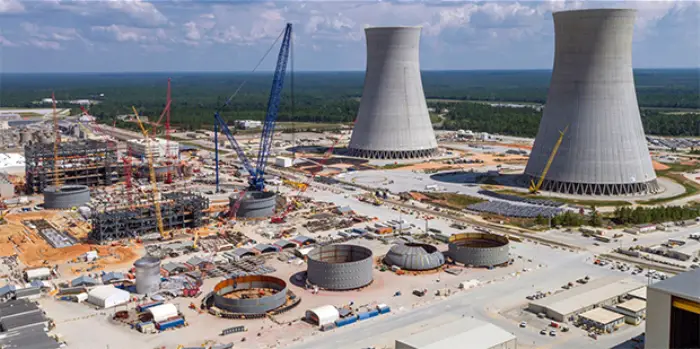South Africa government ponders legal battle to revive Rosatom nuclear deal
South Africa’s energy ministry and Russian nuclear power giant Rosatom have shown that they look forward to press on with plans to construct nuclear power stations in the state, regardless of the decision of the South African High Court that their 2014 cooperation pact was illegal.
Rosatom said recently, that it was still dedicated to taking part in a transparent and cutthroat bidding process to put up the plants. Meanwhile, the ministry showed that it was considering an appeal against the judgment.
Rosatom said in a statement: “We are positive in our world class technology, unparalleled safety standards and extremely competitive solutions.”
The two sides had completed an intergovernmental agreement to build 9.6GW of nuclear capacity and trim down South Africa’s reliance on coal. The range of the deal covered the construction of nuclear plants, research reactors and a programme to train South African engineers at Russian universities.
The document was held to breach competition rules as it obliged the government to work solely with Rosatom without holding open tenders.
Speaking on Twitter, David Nicholls, Eskom’s chief nuclear officer said after the court’s decision: “To put the matter to rest I want to corroborate that @Eskom_SA has terminated the Nuclear RFI.”
Other companies in the competition to build up to 10 reactors besides Rosatom are State Nuclear Power Technology of China, EDF of France and KEPCO from South Korea.
The State Atomic Energy Corporation ROSATOM is a Russian state-owned corporation, which is the chief in the global nuclear technologies market.
It brings together nuclear power and power engineering assets, as well as NPP design and construction.
ROSATOM, produced 196.37 billion kWh of electricity in 2016 (or 18.3% of the nation’s total generation of electricity). ROSATOM holds first place in terms of the number of electricity generating units under construction simultaneously abroad (34 NPP units in 12 countries).
ROSATOM produces yearly approximately 3,000 tons of uranium domestically, and some 5,000 tons in other nations

